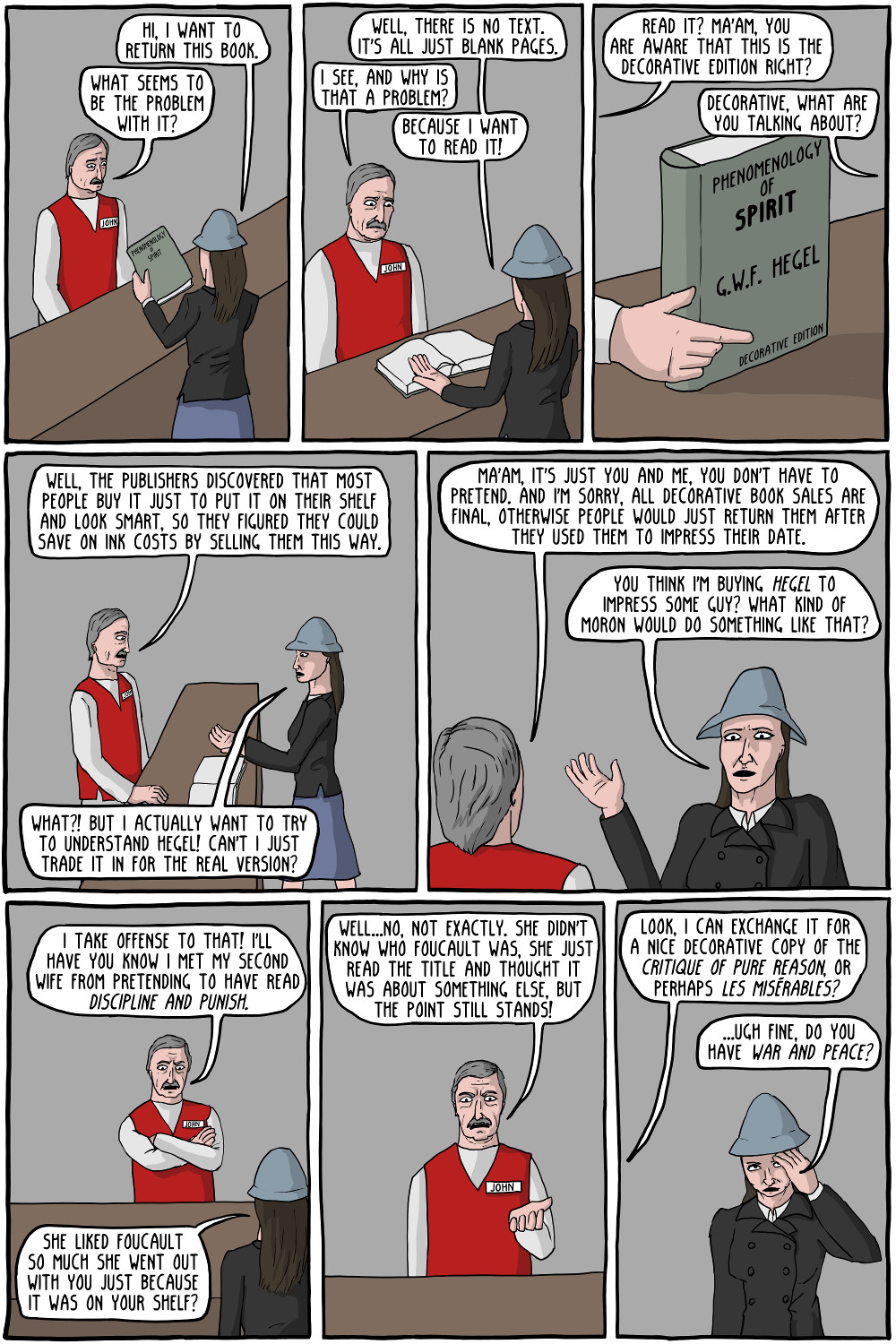...the effect of her being on those around her was incalculably diffusive: for the growing good of the world is partly dependent on unhistoric acts; and that things are not so ill with you and me as they might have been, is half owing to the number who lived faithfully a hidden life, and rest in unvisited tombs.That's how Middlemarch ends, marvelously. I was alerted to it by her greatest fan, Rebecca Mead, who also shines a light on Eliot's philosophical smarts. For instance:
“Love does not say 'I ought to love'—it loves. Pity does not say, 'It is right to be pitiful'Score that for Hume, against Kant, and against all hyper-intellectualism in philosophical ethics.
—it pities. Justice does not say,'I am bound to be just'—it feels justly.” She goes on
to say that dependency upon a rule or theory only when moral emotion is weak. "We think experience, both in literature and in life, has shown that the minds which are pre-eminently didactic—which insist on a lesson and despise everything that will not convey a moral, are deficient in sympathetic emotion,” she writes. My Life in Middlemarch
The other salute came from Robert Coles in his intro to volume 7 of William James's Correspondence, noting Eliot's (and Tolstoy's) superior psychological acuity to that of most professional psychologists. Probably true still, certainly so in their time.
*Existential Comics - The Return Counter











 Charles Darwin (
Charles Darwin (















No comments:
Post a Comment